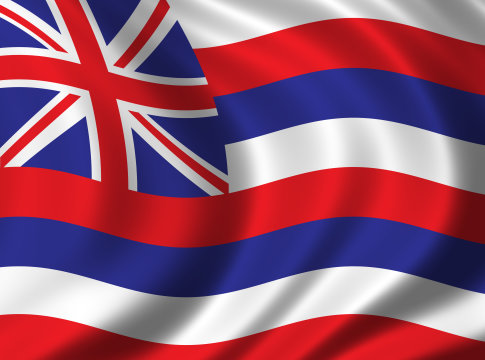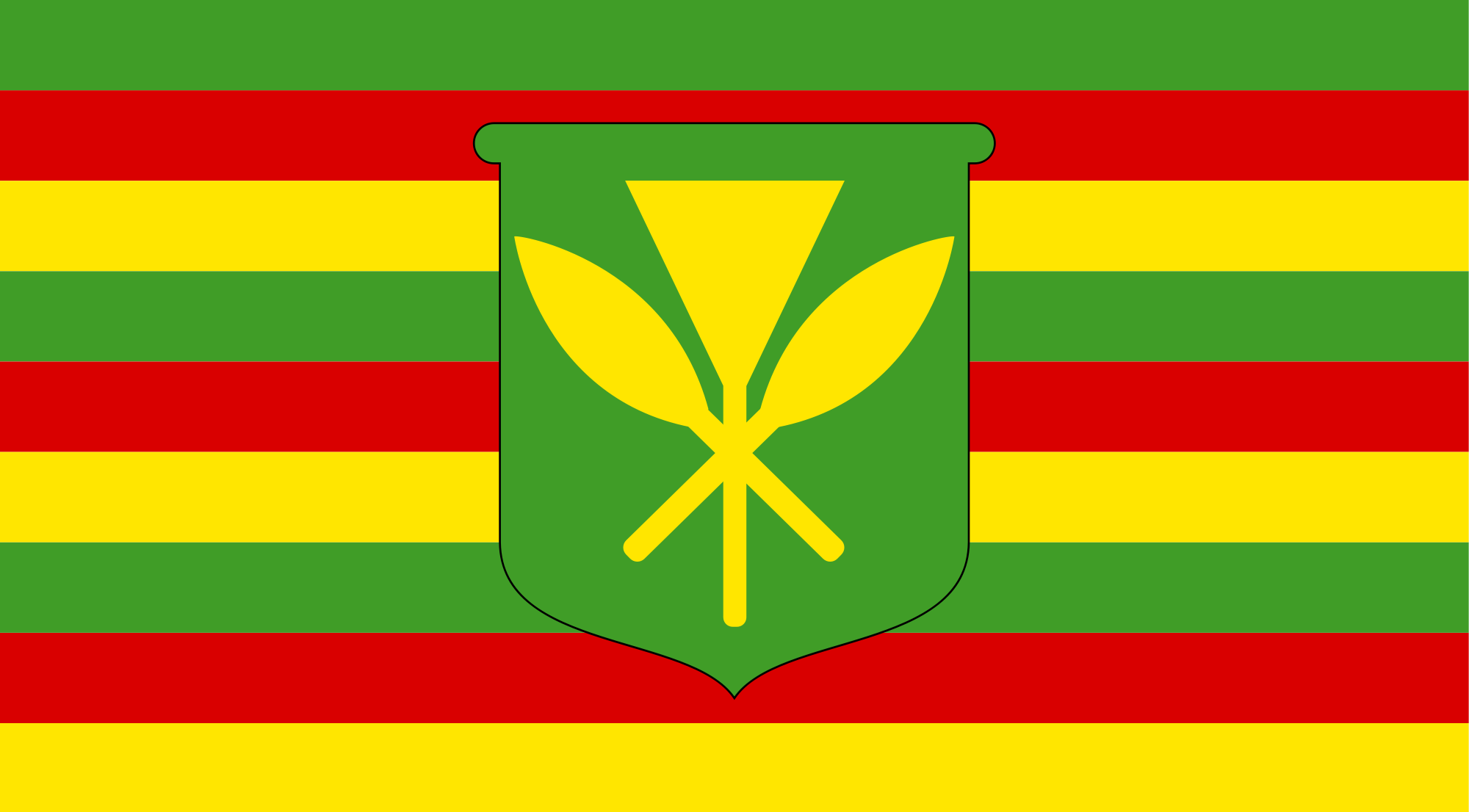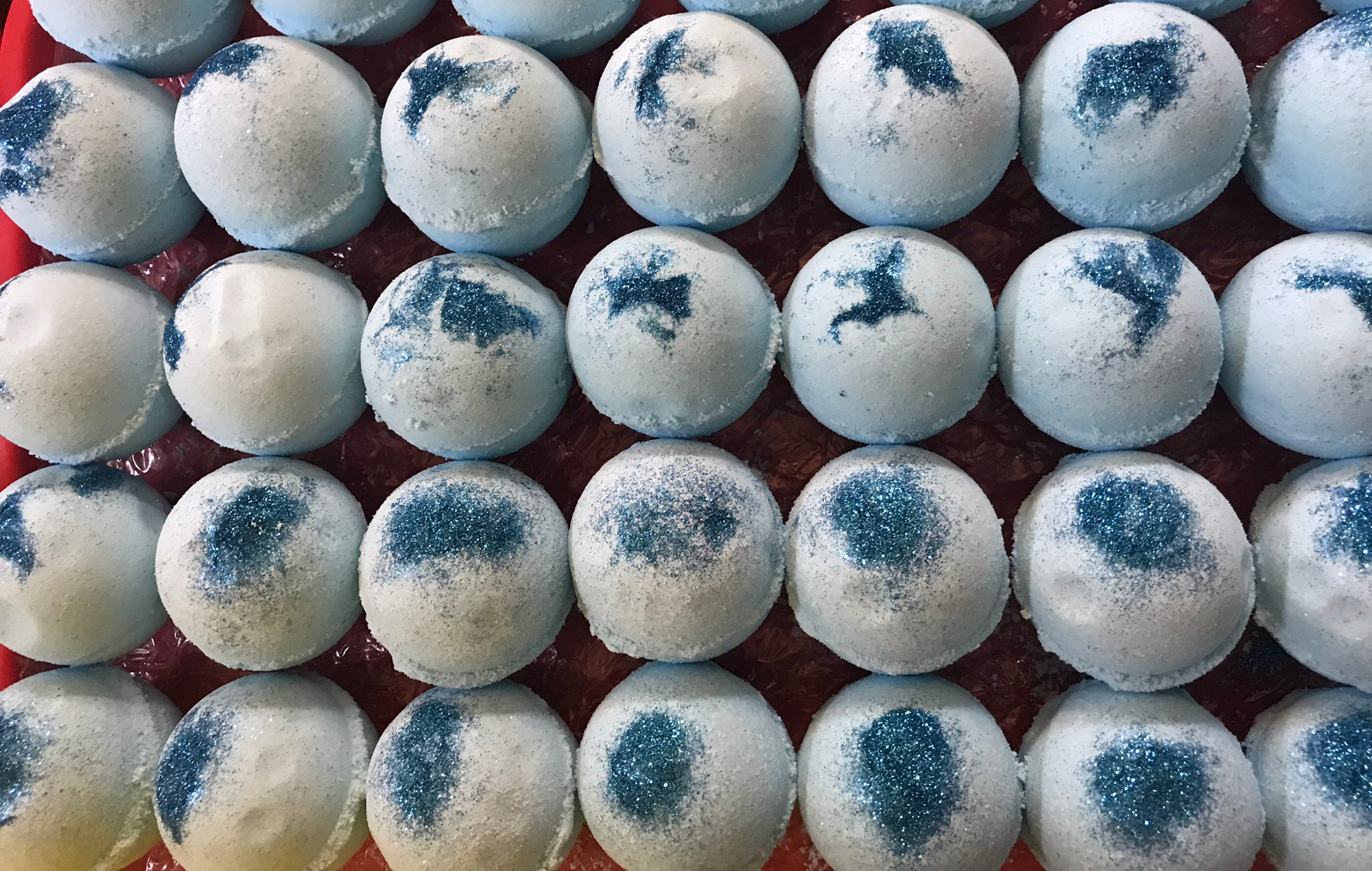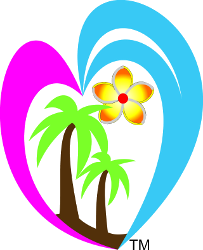 Hawaii, (like many other areas of the world) has many languages and dialects spoken in its borders, but only TWO are “Official Hawaiian Languages”. It is the only US State with Two official languages and many would argue that it is actually THREE. They are Native Hawaiian, English and the third and very prominent is HCE Pidgin
Hawaii, (like many other areas of the world) has many languages and dialects spoken in its borders, but only TWO are “Official Hawaiian Languages”. It is the only US State with Two official languages and many would argue that it is actually THREE. They are Native Hawaiian, English and the third and very prominent is HCE Pidgin
(to understand HCE pidgin, click here to read the page on what is a pidgin)
When you visit one of the Hawaiian islands most kama’aina (local people) speak English, if not they probably speak Hawaiian Pidgin English (HCE).
NOTE: So when you do step off the plane or ship be observant.
Many of the people born and raised in Hawaii who have moved to the mainland may speak fairly normal English, but when they step onto their home dirt their pidgin will become their primary language again and if you haven’t been baptized in Hawaiian Pidgin already, you may not even recognize or understand them.
Okay, to speak like a Hawaiian you need to know a few words. If you’ve read our page on what is pidgin you’ll understand that pidgin is always evolving and new words can pop up as the speaker creates them so be on guard.
Also see: Colors in Hawaiian below.
|
Hawaiian |
English Translation |
|---|---|
| Ali’i (Ah-lee-ee) |
King, Chief. Leader of the people. |
| Aloha (a-low-ha) |
This is the most common salutation in Hawaii. It can mean Hello, Goodbye, Welcome or Farewell. It can also be a romantic greeting, affection or even just meaning Best Wishes. Feeling ALOHA is a general good feeling, peaceful and laid back. |
| Aloha Shirt | An island style pattern printed, flat bottom, button down, short sleeve shirt usually with a left pocket. Originally created in from kimono fabric in 1904 by Honolulu Japanese merchant Kōichirō Miyamoto. It is the largest textile export of the Hawaiian manufacturing industry. |
| Akamai (ah-kaw-my) |
Someone who is really smart, wise or clever |
| Akala (ah-kaw-law) |
Crater of the volcano |
| Akua (ah-koo-ah) |
God, or Gods |
| All pau (all pow) |
Finished, done, over, ended. Also see: Pau |
| Awa (ah-vah) |
Milk fish. An olive green, very silvery and bony fish with a large pectoral fin found in the ocean and sometimes island ponds. They can grow to 5 to 6 feet but average 3 feet. They can live for 15 years and the big ones can weigh in at 14kg (30lbs). They are good to eat but very bony. |
| Aye ! usually yelled |
Calling at someone. Used to get someone or somethings attention. |
| Aznuts | Crazy, nuts, out of your mind. As nuts or crazy as you can get. |
| Babooze | Filippino: Clown or Dummy |
| Bodda | To bother, bug, distract, annoy. Does it bother or annoy you? I’m good with that! Usage: Duz it “bodda” yu? No “bodda” ! |
| Boto Boto Boto |
Derogatory term. Boto in Philippine Tagalog is big penis. Boto in Phillippine Cebuano is vagina. To me growing up in Hawaii, Boto Boto meant “Brown Noser” or “dick head” |
| Braddah | Brother, friend, pal |
| Brah | Slang for Brother, Bro. Friend or pal. All bro’s in Hawaii are brah’s. |
| Break | Refers to wave action |
| Brok’ da mout | Yummy, tasty, wonderful in the mouth, so wonderful that it broke my mouth |
| Bumbye | After a while or When I get around to it. |
| Kaleponi | California |
| Chance’em | Chance ‘Em To take a chance or as an encouragement to take the opportunity and do it. |
| Chicken Skeen | Goose bumps |
| Choke | Means many of something, a lot of something or a very large amount of something |
| Choke’kaw’s | Heavy traffic. Many cars. |
| Da | the |
| Da’kine | A description of a item or a thing. Literal translation: the kind |
| Dat Das |
That That is |
| Daw’nt | Don’t |
| Durty lickins | A heavy spanking, slapping or beating. |
| Er’re-ding | Everything. All of it. |
| Eh ! | Used before or after a statement or question to confirm…. You Know! or used as HUH? |
| Fada | Father, pop, dad |
| Fo’eva | Forever |
| Fo’real | REALLY? Are You Serious? |
| Fo’shua | Response to Fo’real. Absolutely! Yes! Affirmative! For Sure! |
| Geev’em | Give it to them. Let them or it have it. If you’re out fishing and you catch a big one and your struggling to get it in the boat, the deck hands may yell “Geev’em Brah” or give it hell brother. |
| Geev’me | Give it to me |
| Girlfren | Girl friend |
| Grine | Not a commonly used word in all areas. To eat. No, to really eat. To eat like you’ll never eat again. To eat like there’s no tomorrow. |
| Hawd’rub | A hard or bad time |
| Hawd’dime | As, I’m having a Hard Time doing this. This is really hard. |
| Hale (haw-lay) |
House, home, shack or building. By its self it simply means House. It is usually combined with other words to specify a particular house, home, shack or building. A famous Hale is Haleakala (haa-lae-a-ka-la) which is a name of the East Maui volcano and means house of the sun even though the solo word akala means crater. |
| Hailepo (haaye-lay-poe) |
Hawaiian name for the Spotted Eagle Ray, a 6′ long ocean ray with white bottom and black top and long tail. |
| Haole (Howlee) |
1-Foreigner, sometimes it is used as a slang word for white or white foreigners. 2- Not Hawaiian |
| Hapa | Half |
| Hapa Haole | Derogatory to mixed breed Hawaiian/Anglo Meaning: Half white or Half foreigner |
| Hau`oli (How’olee) |
Happy, fun, joy |
| Hau`oli la Hanau (How’olee la hanow) |
Happy Birthday |
| Hau`oli la Ho’omaha loa (How’olee la hoe’ ohmaha low-a) |
Happy Retirement |
| Hau`oli la Ho’omana o (How’olee la hoe’ oh-mana oh) |
Happy Anniversary |
| Hau`oli hanakuha
|
Happy Hanakuha |
| Hau`oli Makahiki Hou (How’olee Ma-ka-hee-kee How) |
Happy New Year |
| HAUNA PILAU | It smells so-o-o bad, it is indescribably bad. Pilau is Turkish for bad smell, but this was probably borrowed from the Tagalog “Pilaw” since there were few to no Turkish workers on the island plantations as HCE was developing. |
| Haupia | Coconut pudding (yummy, very yummy) |
| Hawaiian Time | Always LATE! Islanders will refer to two time zones. What time the event is set for and the Hawaiian Time of the event. |
| Hele (hey-lay) |
Go, move, travel |
| Hele mai (hey-lay my) |
Come here or Come this way |
| Hinuhinu (he-new he-new) |
Shiny |
| Hoe’brah | An intense expression to describe something exciting, intense or amazing. Usage: Hoe’brah… ma fada jus catch da big kahuna of shawks yesdadae. |
| Holoholo (ho lo ho lo) |
Literal: To go out for a walk, sail, ride, etc. To go out for pleasure (shopping, riding, sailing, anything for pleasure). Basically any adventure to clear your head and have fun. |
| Hono (hoe-no) |
Harbor, bay, port. Usage: Hono is da place fo ships. |
| Honu (hoe-new) |
Giant Green Sea Turtle. The Hawaiian Green Sea Turtle, known as “Honu,” symbolizes good luck, endurance and long life. Turtles can show up as a person’s guardian spirit, known as “Aumakua.” Turtles can always navigate to home |
| Howzit | This is the informal way of greeting a local Hawaiian versus the formal Aloha. Usage: Howzit goin’ brah? |
| Hui | Hello, anybody home. |
| Hula (Hoo-law) |
A traditional Hawaiian dance with body, arm and hand gestures and with chants (oli) and song (mele) to rhythm drums and other instruments to describe a story of island life and culture. The hula is done by women (wahini) and men (kane). |
| Huli Huli (hoo-lee hoo-lee) |
To rotate, flip over or turn often as in a rotisserie. The most common use is Huli Huli Chicken. |
| Humuhumu Nukunuku Apua’a | (HooMooHooMoo NuKooNuKoo A poo wah a) Means Trigger fish with nose like a pig. This is the name of two species of trigger fish in Hawaiian waters. A very colorful and beautiful rectangular trigger fish which is The STATE FISH and the lagoon trigger fish or blackbar trigger fish. |
| Imu (ee-moo) |
Means: An underground oven Also see: Kālua |
| Jalike | Would you like to…? Usage: Jalike go moovee? Would you like to go to the movie? |
| Junk | Lousy, rotten, not good Usage: Aye da junk you guys! Ah, that’s rotten you guys! |
| K’den | Okay then, I agree. |
| Kahuna (Ka-hoo-nah) |
A Hawaiian Shaman or Priest. Someone important or the person in charge. Usage: Who he? He Da big Kahuna! |
| Kala (kaw-law) |
Name of the Blue Spined Unicorn fish. |
| Kalo (kaw-low) |
Taro plant It is written in the Kumulipo (an ancient Hawaiian genealogical chant) that Kualoa (on Oahu) is where Papa and Wakea (the ancient chief and his bride) buried their first still born child, Haloa. It is said that the first kalo plant grew up from where Haloa was buried at Kualoa which is now a movie, TV set and popular tourist destination. |
| Kālua (kah-loo-ah) |
Means: To cook in an underground oven (Imu). Also see: Imu The name Kālua transfers to what was cooked: Kālua Pig, Kālua Turkey, Kālua Chicken, etc. |
| Kama’aina (kaw-ma-eye-nah) |
Literal: Child of the land Used as: Local people |
| Kanaka (kaw-naw-ka) |
1- Slang: Canada 2- Hawaiian: Literally means “Man” or tough man, but its a national brotherhood title. A non Polynesian calling a Polynesian kanaka will be challenged to a fight. Usage: Eh brah das one kanaka right der |
| Kanaka Maoli | Means: The True People The Kanaka Maoil Flag, considered by many in the Hawaiian sovereignty movement to be The true flag of Hawaii The Kanaka Maoil Flag, considered by many in the Hawaiian sovereignty movement to be The true flag of Hawaii |
| Kane (kaw-nay) |
Man or men. On a door it means Men’s Room |
| Kapu (kaw-poo) |
Forbidden, keep out, taboo, don’t touch, guarded |
| Keiki (kaye-kee) |
Children, Child or kids |
| Kihikihi (kee-he-kee-he) |
1- A Moorish idol which is a beautiful tropical reef fish that looks like a beautiful angel fish. 2- Maori it is a cicada bug. |
| Kilim | Kill ’em Usage: We gonna Kilium dat pua’a fo da imu. Engligh: We’re going to kill the pig for the pit. |
| Kōkua (co-koowa) |
Help, pitching in together, assistance. Usage: We need your kokua. Please don’t litter. |
| Kolohe (co-low-hey) |
Rascal, scoundrel, mischievous, mischief maker |
| Kukai | Slang: Da’kine stuff birds leave on da car or dogs leave on da grass. |
| Kuku Kane (koo-koo wah-he-nay) |
Grandfather Also used: Tutu Kane or papa |
| Kuku Wahine (koo-koo wah-he-nay) |
Grandmother Also used: Tutu Wahine or Tutu |
| Lāna’i (Law-naw’-ee) |
This is the 4th of the 8 major Hawaiian Islands known as the Pineapple Isle. It also means porch, patio or balcony. |
| Lau Lau | Imu cooked, Tea leaf wrapped, then taro leaf wrapped steamed butter fish with pork or beef. |
| Lei (Lay) |
A garland or wreath. A series of items strung together with the intent to be worn usually around the neck or shoulders. Can also informally mean sweetheart or children. |
| Lesgo | Lesgo grine da’kine poi ovadare by da wada Let’s go eat poi over there by the water |
| Like beef? | You like beef? Do you want to fight? |
| Local or Island Style | The way we do it in the islands. Kick back, relax, no worries. |
| Lolo | Crazy, stupid, dumb Anything dumb thing, can be lolo |
| Lolo bugga | A crazy or stupid or dumb person. Usage: Das one lolo bugga, brah! |
| Lua (Loo-ah) |
The head, the can, the bathroom |
| Luau (Loo-owe) |
A traditional Hawaiian party-feast usually with entertainment with food like: kalua pig, poi, poke, lomi salmon, opihi, haupia and pu pu’s. |
| Luna | High, top, above, up, over as in above. Slang: Boss Man. |
| Maki Die Dead | Maki means dead. Maki Die Dead is extremely dead, real dead. Nevacombing bak dead. |
| Mahalo (Ma-haw-low) |
Thank You |
| Mahalo Nui Loa (Ma-haw-low New-ee low-ah) |
Thank You Very Much |
| Mahu (ma-hoo) |
The old Hawaiian term for people who embody both male and female spirit. Today meaning homosexual. |
| Makai (Maak-eye) |
Toward the sea, or the same side as the sea. Usually used when giving directions or describing an event. Usage: Makai side of the road. Also see: Mauka. |
| Makuahine (ma-koo-a-he-nay) |
Mom, mother |
| Makuakāne (ma-koo-a-ka-nay) |
Dad, father |
| Malasada | Portugese: Donut (very yummy!) |
| Malihini (Ma-lee-hee-nee) |
Newcomer, stranger, tourist, novice, one unaccustomed to hardship. |
| Mano (Ma-no) |
Shark |
| Mauka (Mah-oo-ka) |
Toward the mountain(s) or on the same side as the mountain(s). Usually used when giving directions or describing an event. Usage: Mauka side of the road. Also see: Makai |
| Mauna (Mah-oo-nah) |
Mountain. Usually used with other words to describe a particular mountain. |
| Mauna Kea (Mah-oo-nah Kay-ah) |
White Mountain |
| Mauna Loa (Mah-oo-nah Low-ah) |
Long Mountain (The active volcano on the big island “Hawai’i”, the largest volcano on earth). |
| Mele | Musical Vocal, to sing, a song |
| Mo’betta | More than better, real good, best. Usage: mo shimp is mo’betta. |
| Moa | More Usage: Mahalo, Geev’me moa shrimp |
| Moke | Moke is a derogatory word that comes from British slang meaning big donkey. In Hawaiian it means a large, dumb, tough guy. |
| Moi Moi (Moa-e moa-e) |
Sleep |
| MuuMuu (moo moo) |
Aka: MuMu. A long loose dress of Hawaiian origin like the Aloha Shirt. Usually patterned in bright floral designs. |
| Nai’a | Spinner Dolphin |
| No’act | Stop acting up, putting on an act, showing off. Usage: No’act, brah! |
| No’feah | No fair |
| No’mo | No more |
| Nui | v. Great, Big, Abundant n. Plenty, a lot, a group of Usage: Nui ‘Ohana=Great or Big Family |
| ‘Ohana (oh-han-a) |
Family. The Ava Family would be the Ava ‘Ohana. Many homes have an ‘Ohana sign out front. |
| Okole (oh-co-lay) |
Buttox or butt. |
| Oli (oh-lee) |
To chant |
| Ono (oh-no) |
1- A tasty white meat fish from the ocean. 2- Delicious or tasty when describing food. Ono Ono means really delicious or really tasty. |
| Ono’liscious | Ultra, way and overly delicious. |
| Opihi (oh-pee-he) |
A Hawaiian shell fish known as the most deadly seafood delicacy. No it’s not poisonous, it lives on rocks in torrent wave thrashed ocean cliffs and many opihi pickers have been killed trying to harvest this food. Pound for pound it is the most expensive pupu in Hawaii. |
| Papa | Grandpa |
| Pali (Pah-lee) |
Cliff |
| Pau (pow) |
Finished, done, over, ended. Usage: All Pau? Are you finished? |
| Pau Hana (pow haw-nah) |
Work day is over. Literal: Finished Home, or Work is done, time go home. |
| Pakalolo (pah-kaw-low-low) |
Smoke that make you crazy. Crazy Smoke. Maui-Wowie, Marijuana, Weed, Grass, Dope. |
| Pele (pay-lay) |
Goddess of Fire. The long lava rivers are her long hair. |
| Planni | Plenty |
| Poi (Poe-ee) |
A starchy Hawaiian staple food made by pounding the cooked taro root into a thick, sticky, gooey, dough like purple paste. |
| Pua’a (poo-ah’ ah) |
Pig |
| Puhi (poo-he) |
Name for Hawaiian Moray eels |
| Puka (poo-ka) |
A hole in something of any size. Sometimes the item with a hole gets the name puka like: Puka Shell Necklace. |
| Pu Pu (poo-poo) |
Appetizer. Asian or traditional Hawaiian meats and seafood in appetizer portions. Usage: Mahalo, pass da pupu |
| Shaka | 1- A hand sign made by holding all fingers down with thumb and pinky finger sticking out and holding it up, shaking it or twisting it in the air. Also known as the “Hang Loose” sign. 2- Great, cool, good job, having fun, happy, etc. |
| Sista | Sister |
| Shishi (she she) |
Hawaiian Pidgin: To Pee. Usage: I gotta go shishi. Weaah da bafroom? Origin: Probably borrowed from the Portugese xixi Note: in Japanese it means: Men of high purpose |
| Slippas | Those tings on da feet. A term to mean the most comfortable Flipflops or the easy come easy go slippas you leave by the door in a pile, like the cheap ones from little corner store. |
| Stinkface | The nasty look you give someone when you’re displeased with them. Usage: Daw’nt geev’me stinkface, brah. |
| Stinkeye | Same as stinkface only more glaring look |
| Ta’ape (tah’-ah-pay) |
Blue stripped snapper fish |
| Tako (Taco) |
Octopus |
| Talk Stink | Mean, telling bad things about someone or something. |
| Talk Story | Friendly chatting or talking with another person. |
| Trymove | Move, get out of my way. Usage: Trymove away, brah. |
| Tutu | Shortened version of Kuku used for grandparents |
| Uhu (oo-hoo) |
Parrot fish that eats coral and poops sand. Each fish poops about 1 ton of sand a year. |
| Uku (oo-koo) |
Grey snapper that live in deeper water on the reef and average 3 feet long. |
| Ukulele (oo-koo-lay-lay) |
A small 4 to 8 string guitar style instrument. |
| Ulua (oo-loo-ah) |
Hawaiian name for Jack and Giant Trevally fish found in Hawaiian waters. |
| Waha | Mouth, meaning: All talk no doey. |
| Wahine (wah-he-nay) |
A Polynesian Woman or wife, or female surfer. On a door it means Lady’s Room |
| Weaah is | Where is |
| Watdoing? | What are you doing? |
| Wi’go | Let’s get going. |
| Wiki (we-key) |
Fast, Quick, in a hurry Wiki Wiki means very fast, move quickly, lets go quickly. |
| For the complete list of all of the written true Hawaiian words click here and visit Hawaiian-Words.com |
|
| COLOR | Hawaiian |
|---|---|
| BLACK | ‘Ele’Ele |
| BLUE | Polu |
| BROWN | Palaunu |
| GRAY | ‘Ahinahina |
| GREEN | ‘Oma’Oma’o |
| ORANGE | ‘Alani |
| PINK | ‘Akala |
| PURPLE | Poni |
| RED | ‘Ula’Ula |
| WHITE | Ke’oke’o |
| YELLOW | Melemele |
![]()

